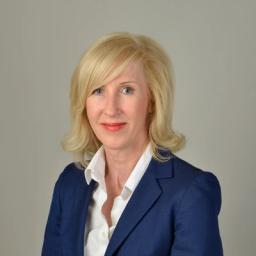Team diversity: avoiding an echo chamber

By Jane Colston
Jane Colston considers the importance of being part of a diverse team who challenge your thinking
I'm mindful of the old adage, ‘If you see an intelligent person, wear out their doorstep'.
How do you make good decisions? We may have experience, but do we reflect and challenge that experience, notice what other people do and the success or failure that follows? You can learn as much from a bad decision as a good one.
As tech companies say, ‘fail fast and often’ (albeit, learn from your mistakes and be agile). The more you surround yourself with a demographically and cognitively diverse team, the better your decisions will be.
It may be more comfortable working with someone who agrees with you, but as Ian Leslie’s book Conflicted states: “Business relationships either become too tense to tolerate or after a while, not tense enough to be productive.” An echo chamber of the same view, ultimately, will not be agile enough.
The echo chamber analysis was explored by Matthew Syed in Rebel Ideas, in the context of management structures, both in boardrooms and on the peak of Everest. By leveraging the knowledge and experience of individuals from all walks of life, we avoid group blind spots and instead arrive at more innovative solutions to problems.
Last week, I was talking to law graduate, Yasmin Hassan, who is aiming for a training contract. She is the first in her family to pursue law. She said: “You don’t know what you don’t know and while I can find a lot out from my own efforts, having someone to ask questions about the recruitment process is invaluable.
“So many opportunities pass you by without you ever knowing about them. The legal profession recruits early and those that do not have relevant contacts or switched on schools or universities may find themselves falling behind.
“For example, firms offer opportunities for first year law students which can result in vacation schemes or training contract offers. These schemes enable those who are well-primed from their socio-economic background to get ahead to build a CV that enables them to be competitive.
“However, some students who have only just started their degree, unless guided and encouraged, are unlikely to know they need to check this early for such opportunities with a potential future employer.”
If our legal profession and judiciary are to be cognitively and demographically diverse and representative of the communities and businesses they serve, there is a need for programmes which ensure social mobility.
There have been recent calls to lengthen the school day to help prevent disadvantaged pupils from falling behind due to the pandemic, providing better career advice in schools and expanding work placements. This call to action chimes well.
Earlier this year, Brown Rudnick launched a partnership with the Urban Scholars Programme (USP) at Brunel University as part of our firm’s commitment to diversity and inclusion. The programme is the first funded and strategic collaboration between USP and a law firm.
USP is a sustained, three-year intervention programme for London secondary school students, aimed at improving career preparedness. The significant investment horizon is deliberate. It takes time to develop confidence – a necessary ingredient for any organisation to establish cognitive and demographic diversity.
The scholars, aged 14 to 18, come from 31 London schools; many come from socially deprived areas where a career in the law may seem unobtainable. USP offers students a direct and lasting connection to professionals who will provide mentoring, a wide variety of engagement activities, workshops and other learning opportunities.
We intend to inspire and empower USP students, some of whom could become the first in their families to attend university and enter the legal profession.
Since 2016, I have helped organise Brown Rudnick’s Women in Business speaker series, bringing together women lawyers and business professionals from across industries to discuss their careers, including Cressida Dick, Cath Kidston MBE, Lady Justice Carr, Deborah Meaden and barrister and author, Alexandra Wilson. These events provide a useful group mentoring opportunity.
Life is challenging – never more so than during the pandemic. The curious learn new skills and adapt quickly. So, to adapt the saying, ‘if you see a diverse team, wear out their doorstep.'
Jane Colston is a commercial litigation partner at Brown Rudnick brownrudnick.com

